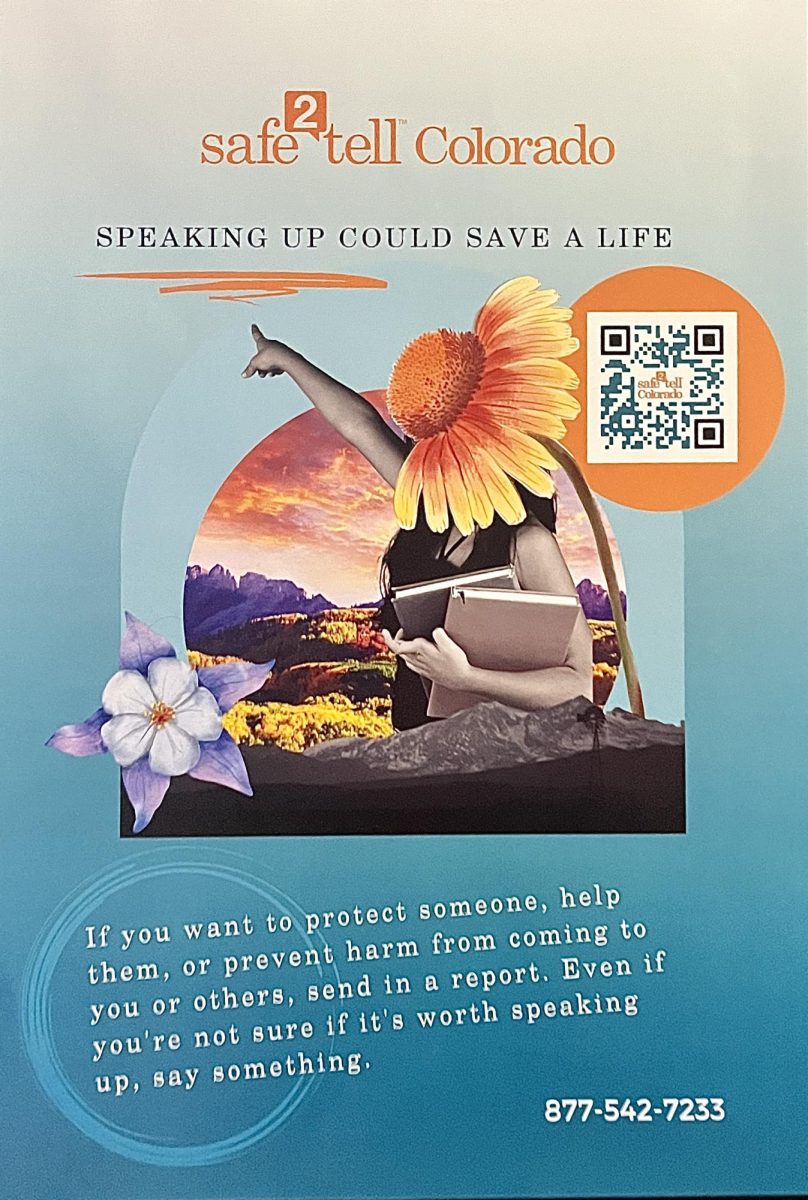Let’s Talk About Mental Health
ASPEN — In a recent meeting with the AHS College Counselor Kathy Klug, we stumbled upon the topic of education surrounding mental health, or lack thereof. Klug mentioned to me that a recent AHS graduate was extremely passionate about implementing more teaching about basic mental health, and it got me thinking. In the days following, I extensively pondered how society could possibly skim over a topic as colossal as mental health in our basic education, and how still, it seems as if people are embarrassed to even talk about the subject.
Worldwide, approximately one million individuals commit suicide per year. As of 2014 (according to suicide.org), there were 13 suicides per 100,000 people in the United States. The suicide rate of our town alone is nearly three times the national average. Given these statistics, it is shocking that the education surrounding mental health is so minimal.
As children, we have all had a cold, flu, or fever. We have all had the experience of sitting in bed with our heads spinning, stomachs aching, noses running, and feeling like our world is coming to an end. However, we are taught from a young age that our illnesses will get better and even as we feel horrible, we know that there is a light at the end of the tunnel. Although having severe depression or anxiety is by no means as easy to recover from as the common cold, it is still something that people are able receive treatment for, and in many cases where treatment is received, recover from. Because it is merely touched upon in most school systems, many teenagers leave school knowing next to nothing about mental health, which can lead to severe consequences in their adult lives.
Michelle Muething, the Executive Director of The Aspen Hope Center, stated that she feels that education surrounding mental health could be improved, and that as a consequence of the lack of education, facilities such as The Aspen Hope Center often receive patients seeking help in the most severe stages of their condition, which is the hardest to treat.
“I think that the way we educate is ineffective because how we inform people often keeps them from seeking help until they hit rock bottom,” Muething said.
Muething also added that she thinks it would be beneficial to have the educators be people who have experienced depression or anxiety, because the information would be coming from someone who had recovered, and was able to show that their condition was treatable.
Additionally, there seems to be a stigma when it comes to opening up about depression or anxiety. In many cases, it seems to be a topic that is skirted around, or kept a secret. There is a pressure for everyone to act as if their lives are perfect and put together in our current day society, creating the idea that mental conditions should not be talked about. A common misconception is that depression is just a feeling; that it is merely a long-lasting and irrational sense of sadness to be ashamed of. However, in the most basic terms, clinical depression is a chemical imbalance in the brain. It is not just a feeling, but a treatable medical condition. The same goes for anxiety. Yes, these conditions are generally induced by life circumstances, but they are not, as a vast majority of the population seems to perceive, an unusual condition that should be kept a secret.
My freshman year, I lost my dad to suicide. This came as a shock to almost everyone who knew him, myself included. The repercussions of that loss were astounding, and completely changed the course of my life thus far. In small mountain towns, suicides are incredibly prevalent, and living in Aspen, it is especially important that we are educated on what we can do to prevent people from making that drastic choice. By bringing these conditions out into the open, people could perhaps feel like they have options and support, instead of being ashamed of the feelings they’re experiencing.
We need to implement a class – or at the very least a large section of our current health classes – that is dedicated to educating people to care for themselves mentally as well as physically. The stigma needs to be destroyed in order to quite literally save lives. If it were more acceptable to openly talk about conditions such as depression and anxiety and treat them as we would treat a common cold or flu, we could start to solve a problem that is depriving so many people from the lives they deserve.

Olivia Oksenhorn is a senior at Aspen High School and Co Editor-in-Chief for the Aspen Skier Scribbler. This is Olivia's fourth year writing for the newspaper,...





















